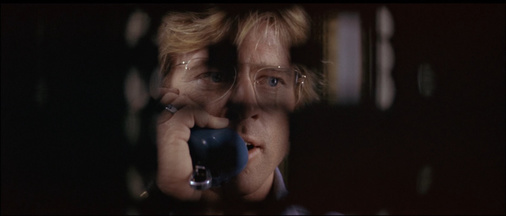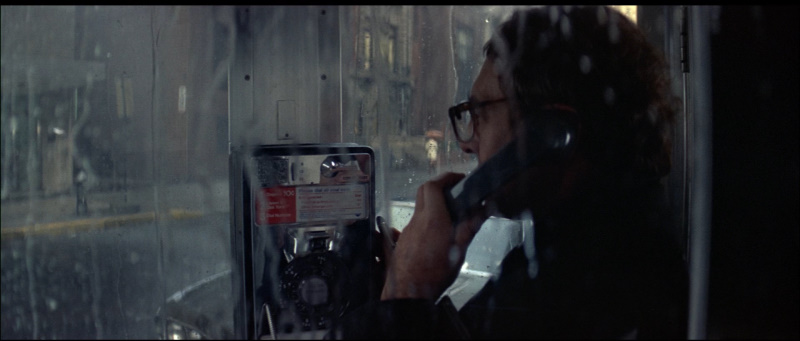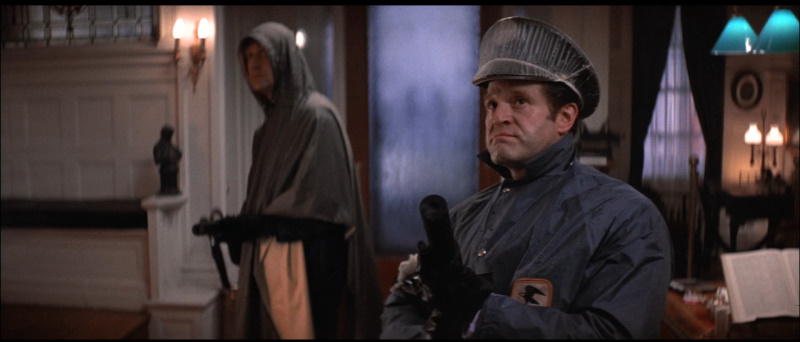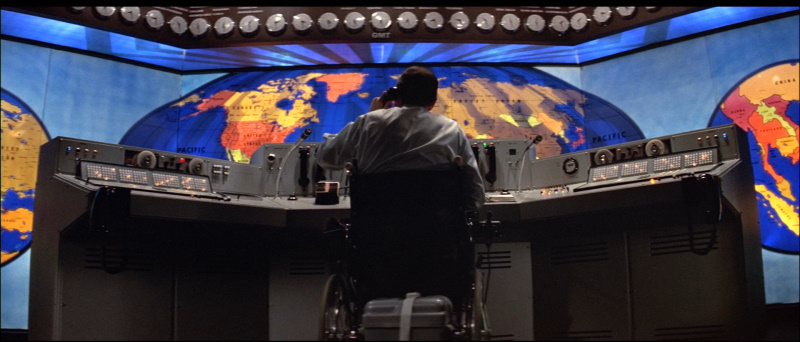 Sydney Pollack's Three Days of the Condor tells the story of CIA researcher Joe Turner, who returns from lunch to find the entire staff of his small New York Office murdered. Desperate for answers, Joe connects with his boss and friend at the CIA to fill him in on the assassination, but on his arrival he is shot at, sending Joe fleeing for his life. On the run from not only the police, who believe he is responsible for the death of his coworkers, but his own agency as well, Joe finds himself holed up with Kathy, a nondescript civilian, who slowly becomes Joe's only ally. With pressure mounting, Joe expects foul-play from the CIA, the very organization which hired him, leading him with no other choice but to bring the story to the New York Times in an attempt to spare his life and expose the truths to the shady practices of the intelligence community. Being one of the more iconic conspiracy thrillers to come from the 1970s, Sydney Pollack's Three Days of the Condor finds the working every-man, a mild-mannered CIA researcher in this case, confronting big government through his discovery of a far-reaching conspiracy that casts a lot of criticism on federal wrongdoings. Given the time period of its release, Three Days of the Condor certainly draws inspiration from the congressional investigations of the time period, such as Watergate and the Pentagon Papers for example, but what Three Days of the Condor is able to say about the value of human life is what makes it still ring very true today. Through the wholly convoluted dealings of the intelligence community which routinely features multiple parallel operations and double-crosses, Three Days of the Condor reveals the low value put on human life, exposing the amount of death and destruction the intelligence community is willing to commit for the perceived greater good. While I'd argue Three Days of the Condor pales in comparison to some of the great 70s paranoia thrillers like, The Parallax View, the film is at its best when captures the sense of isolation many operatives experience, something which can leave them with a form of humanistic detachment, something which intelligence agencies exploit with immunity in their practices. While I'd argue that the whole relationship which unfolds between Ted and Katherine takes away from the momentum of the thriller at times, one could argue that it's this relationship which Ted experiences with Katerine that symbolically represents Ted's ability to break free of the detachment and isolation of his job, inevitably leading him discovering the true nature of this far-reaching conspiracy. Three Days of the Condor features cinematography that wonderfully elicits a sense of paranoia, using point-of-view shots, well-placed compositions, and slow, meandering camera movements which have a voyeuristic quality, only aiding in transporting the viewer into Turner's predicament. Pollack's direction routinely lingers on certain moments of tension, giving the viewer a real sense of unease that makes the life of Joe Turner feel threatened at every turn. Featuring a narrative that keeps the viewer intrigued from start to finish, Sydney Pollack's Three Days of the Condor is a sharp political conspiracy thriller about the dangers of an intelligence community with far too much impunity.
0 Comments
Leave a Reply. |
AuthorLove of all things cinema brought me here. Archives
June 2023
|



 RSS Feed
RSS Feed
